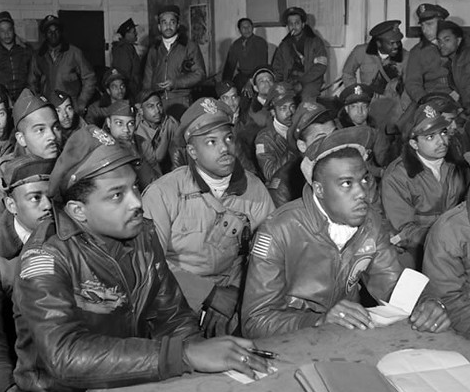|
|
| |
Historical Background |
| |
|
|
|
Was the 24th's reputation in Korea deserved, or was it a gross distortion
of the facts brought on by racial prejudice? If bigotry was involved, were
there nevertheless some grains of truth at the base of the regiment's poor
reputation? If so, where does the truth end and the prejudice begin?
The situation in the 24th Infantry did not arise in a day. It grew out
of a history extending back over a hundred years to the abolition of the
system of slavery that had marred the American experience from its beginning.
For once the African-American had been freed of his bondage and had gained
some rights of citizenship, it made sense that he should serve in the nation's
armed forces. Yet vast hostility to blacks remained in the very fabric
of the society, so much so that the integration of whites and blacks into
the nation's Army seemed out of the question.
|
 |
| |
|
| |
As a result,
although blacks served, they always did so
apart, segregated into battalions, regiments,
and divisions reserved exclusively for them.
They fought dependably and creditably on the
Western Frontier, in the Spanish-American War,
and during the Philippine Insurrection, but they
never seemed able to overcome the attitudes of
the white nation that employed them.
Instead, the white world pulled back into itself
by enacting "separate but equal" laws that had
the effect of rendering African-Americans and
their contributions invisible. When segregated
soldiers rebelled against that system at Houston
at the beginning of World War I, the mistrust
they engendered among whites helped to erase
whatever credit black units had earned in
earlier wars and influenced how white commanders
viewed them in subsequent conflicts.
In World Wars I and II, the African-American soldier seemed destined
for failure from the beginning. Ascribing to assertions that blacks were
lazy and of low intellect, the Army's commanders used them mainly to perform
menial tasks, such as unloading ships and digging ditches. |
| |
|
|
|

|
|
Even when finally
constrained by political pressure to form all-black regiments and divisions
and to allow African-Americans to enter combat, they tended to employ them
in areas where little would be lost if they failed.
When black Americans
performed well, as they did when they fought under French command in World
War I, white America made little of their successes, but when they failed,
as some did, the news was well circulated.
Over all, few in positions of
authority were willing to admit that the system of racial segregation was
at fault or that a lack of mutual confidence and respect between the black
soldier and his white commanders had all but destroyed the sense of oneness,
mutual dependency, and self-worth in black units that are the chief constituents
of good military performance.
|
|
|
